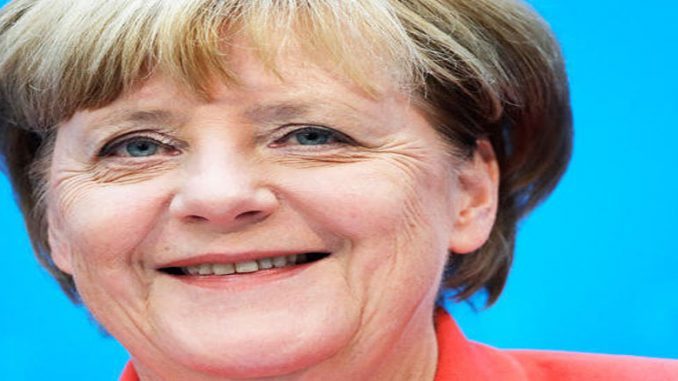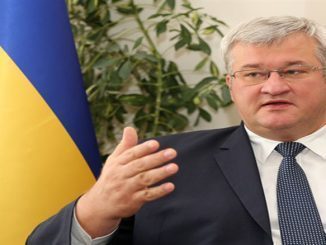
German Chancellor Angela Merkel asks Ankara to address European concerns over constitutional changes
Addressing lawmakers in German parliament on Thursday ahead of an EU leaders summit in Brussels, Merkel said recent political tensions has “severely hit” EU-Turkey relations, as well as relations between Germany and Turkey.
But she turned down opposition calls to suspend Turkey’s EU membership talks, or end to cooperation with Ankara.
“An irreversible departure of Turkey from Europe, and also Europe from Turkey, which I would like to say with caution; would be neither in the interest of Germany, nor that of Europe,” she stressed.
Merkel noted that German Foreign Minister Sigmar Gabriel will meet his Turkish counterpart Mevlut Cavusoglu on the sidelines of an informal gathering of EU member states and candidate countries in Malta on April 28-29.
“We will continue our efforts to return to a constructive dialogue between Germany and Turkey, and between Europe and Turkey,” she said, adding that they will continue to closely follow developments in Turkey, in the fields of democracy, rule of law and human rights.
She renewed Berlin’s criticism of Ankara over the detention of German daily Die Welt’s Istanbul correspondent Deniz Yucel, who is jailed pending trial on charges of terrorist propaganda and inciting hatred.
Merkel said EU-Turkey relations were not on the official agenda of Saturday’s EU summit, where the EU’s 27 member states, without the UK, were scheduled to adopt guidelines for Brexit negotiations.
But the leaders are likely to touch developments in EU-Turkey relations during their discussions, she added.
The German Chancellor underlined that the EU’s 28 member states should adopt a common policy on future relations with Turkey, based on a clear and smart approach.
More than 50 percent of Turkish citizens voted Yes to a presidential system in Turkey’s April 16 referendum, but several European institutions raised concerns arguing that such a change would weaken the independence of the judiciary, and other necessary checks and balances of a democratic system.
During her address at the German parliament, Merkel voiced respect for the right of Turkish people to make decisions on their country’s constitution.
However, she also urged Ankara to take reports of European institutions seriously and address European concerns over constitutional changes, and alleged irregularities during the referendum process.
While a joint report by Parliamentary Assembly of the Council of Europe (PACE) and Organization for Security and Cooperation in Europe (OSCE) criticized the conduct of Turkey’s April 16 referendum, Ankara slammed the report and expressed strong doubts about its impartiality.
Turkish media reported that several European observers such as German lawmaker Andrej Hunko, who contributed to the report, had publicly backed the No campaign, and had supported the rallies of the terrorist group PKK.
The concerns raised by several European institutions over the presidential system in Turkey are dismissed by the ruling Justice and Development (AK) Party.
AK Party leaders have promoted the presidential system, stressing that it would bring a more effective administrative system that would speed up much needed reforms and enhance political stability.



